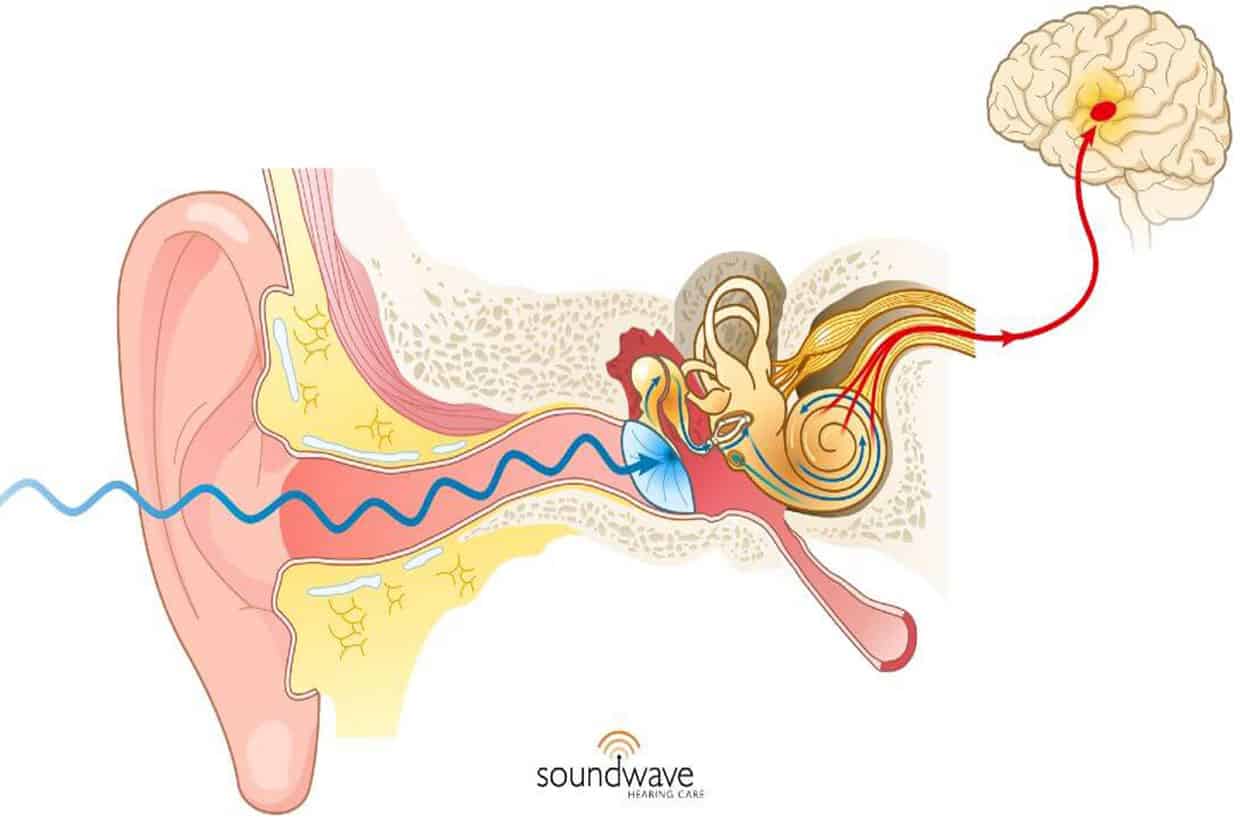Blog
Blog
What part of the brain processes what you hear?

After years of research, neuroscientists have discovered a new pathway that suggests auditory processing may occur in parallel in the human brain. This understanding could have a significant impact on people with auditory processing disorders. Here’s an overview of everything you should know.
The traditional science
For decades, scientists believed that speech processing followed a linear pathway, like an assembly line in a factory. It was widely believed that speech sounds had to be processed by a specific area in the brain called the primary auditory cortex before passing through an adjacent region referred to as the superior temporal gyrus (STG) in order to transform syllables, consonants and vowels into meaningful words.
Evidence for this theory was lacking, however, partly because the auditory part of the brain is deeply hidden between the frontal and temporal lobes, making it difficult to study. Now, new evidence suggests that the traditional model of speech processing was overly simplified.
The new research
In a recent study published in Cell on August 18, 2021, researchers found that the STG functions independently from the primary auditory cortex. In other words, the STG and auditory cortex process sound simultaneously instead of sequentially.
To reach this conclusion, scientists studied nine participants who underwent brain surgery. The researchers played short phrases and sentences for each participant in order to track their brain activity. Though researchers expected the auditory information to flow sequentially from the primary auditory cortex in the auditory lobe of the brain to the STG, it didn’t.
Surprisingly, the team found that some areas located in the STG responded as fast as the primary auditory cortex, suggesting that both areas started processing auditory information at the same time.
Furthermore, as part of a clinical language mapping trial, researchers stimulated the nine participants’ primary auditory cortex with small electrodes. If participants needed this area to understand speech, stimulating it would prevent or distort their perception of what they were being told. Despite having auditory noise hallucinations, participants could still hear and repeat the words said to them.
However, when researchers stimulated the STG, the participants reported they could hear people speaking but couldn’t clearly make out the words. One participant said it sounded like the syllables were being swapped.
The new findings suggest that the brain processes both sounds and words simultaneously and in parallel. The primary auditory cortex focuses on acoustic information, while the STG focuses on speech perception.
What’s auditory processing disorder?
An auditory processing disorder (APD) is a neurological condition that impacts the brain’s ability to filter and interpret sounds. People with APD have normal hearing abilities, but their brains have a hard time receiving, organizing and making sense of sound.
It’s unclear what causes APD. However, some people with autism spectrum disorder (ASD) or attention deficit hyperactivity disorder (ADHD) also suffer from APD.
How to diagnose APD
Auditory processing is a key element in a person’s ability to communicate with the world. Consequently, people with APD tend to have difficulty learning and succeeding in school, work and social settings. Therefore, early diagnosis is important.
To diagnose APD, you must have your hearing evaluated by an audiologist. The audiologist will run a series of tests in a sound-treated room that require you to listen and respond to a variety of sounds, signals and instructions. In general, the listener must be at least seven years old to participate in the assessment.
How to treat APD
There are a variety of ways to treat APD, such as attending speech therapy, making lifestyle changes and learning compensation strategies. Auditory processing disorder cannot be treated with medication because it’s a neurological disorder.
However, now that researchers suspect the human brain uses parallel processing to understand sounds and speech, it may give doctors new ideas for how to treat auditory processing disorder (APD).
Hearing specialists in Alberta
If you think you or your child is suffering from auditory processing disorder, the audiologists at Soundwave Hearing Care can help. We offer comprehensive auditory processing assessments and hearing tests to help you reach an accurate diagnosis. For more information about our products and services, please contact us at one of our locations in Calgary, Lethbridge, High River or Grande Prairie.
All the blogs are reviewed and edited by our clinic's lead audiologist, Dr. Anne Wooliams. Dr. Woolliams is an experienced audiologist specialized in pediatric audiology, auditory processing, and tinnitus/sound sensitivity therapy. She is dedicated to providing top-notch hearing care and helping her clients improve their language and communication abilities. Dr. Woolliams' expertise in literature and linguistics, combined with her passion for helping people improve their language and communication, make her an incredibly valuable asset in the field of audiology. Learn more about Dr. Woolliams.
